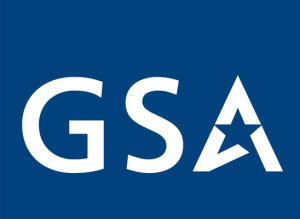
DHS’ internal assessment of its $1.5B agile contract: ‘significant errors and missteps’
The Homeland Security Department’s “motion to dismiss” outlined in honest detail what went wrong with its small business procurement known as Flexible Agile...
If the Homeland Security Department’s decision to cancel its $1.5 billion contract for agile services wasn’t shocking enough, the details of the missteps and problems the agency detailed in its “motion to dismiss” left long-time federal procurement attorneys and vendors with their collective mouths agape.
DHS filed the “motion to dismiss” with the Government Accountability Office on May 26, saying it was canceling the small business procurement known as Flexible Agile Support for the Homeland (FLASH) and thus ending the six-month series of awards and protests over the contract vehicle.
“DHS has determined that cancellation of the FLASH solicitation, HSHQDC-16-R-00118, is the only viable option to address the many issues that DHS has identified as problems with the requirement and the record,” DHS lawyers wrote to GAO in the document, which Federal News Radio obtained. “The integrity of the procurement process will be served by this cancellation.”
Barbara Kinosky, managing partner with Centre Law and Consulting LLC, said she was “floored” by DHS’s honesty and the level of detail it provided.
“They did everything but name names,” she said. “It is absolutely draconian to cancel the contract at this point. It means it is so flawed that they couldn’t tweak this, or conversely they decided not to let all the protestors on to the vehicle. I suspect the whole methodology was flawed and even if they tweaked the evaluation factors it was still susceptive to more protests.”
In the motion to dismiss, DHS said the problems with FLASH ranged from the evaluation criteria and adjectival ratings to the price evaluations and best value tradeoffs to lacking the expertise in agile software services to do a proper evaluation.
“DHS has also determined that the evaluation of the offerors may have resulted in unequal treatment of offerors’ weaknesses and risks. This is partially due to the adjectival ratings that were used, but also due to the evaluation process used to evaluate and assess offerors during the technical challenge exercises,” DHS stated in its motion. “DHS has identified issues in the price evaluation report (PER) and best value tradeoff analysis (BVTA) which do not adequately support its award decisions. The methodology by which the price evaluation team evaluated price realism is not identified in the PER. Nor is it evident in the PER itself what DHS reviewed and evaluated to determine whether prices were reasonable and realistic.”
Christoph Mlinarchik, a government contracts expert and owner of Christoph LLC, a consulting firm, said DHS’s self-assessment of the FLASH procurement resulted in a firm vote of “no confidence” due to a “comedy of errors: poorly executed technical challenge evaluations, sparse price analysis, inadequate tradeoff analysis and more.”
“The most glaring admission by DHS is that critical documents were altered after award, like the technical evaluation report and best value tradeoff analysis. These critical documents were changed after submission to the GAO as part of the official record– a flagrant foul that undermines the bid protest system,” Mlinarchik said. “In summary, DHS rolled over, showed its belly, and provided ample reasons that the FLASH procurement was a total failure. This does not look good for DHS, but it shows courage in admitting fault and starting from scratch instead of putting lipstick on a pig.”
The decision to cancel FLASH left vendors both relieved and in disbelief. One industry source, who requested anonymity for fear of retaliation from DHS, said it was a painful process from the beginning.
“Facts are clear that this was a flawed procurement, and probably the most flawed procurement we have ever participated in over the last 20 years,” the industry source said. “ We uncovered the flaws because industry is talking to each other. We partnered with a lot of companies that were bidding on FLASH over the years. Industry started to look at the debriefs and started talking to other business owners and started uncovering that we got dinged for something that another company didn’t, and we did the same thing.”
The industry source said it cost their company more than $200,000 to bid on and then protest FLASH.
Some attorneys said they wouldn’t be surprised to see the vendors ask GAO for a ruling on whether DHS should reimburse the vendors for legal fees.
Kinosky said DHS seemed to get FLASH off on the right foot by conducting a lot of outreach to industry and asking for comments on the draft solicitation.
“I think mistake was DHS made it complicated and the more complicated you make it the more chance for error,” she said. “You are turning it into subjective from objective.”
The industry source and procurement experts lauded DHS for trying to be innovative and open the door for new companies to work for the agency.
Kinosky said one possible reason DHS was so honest in its assessment was for other agencies to learn from their mistakes.
DHS told GAO that it “plans to solicit a new set of requirements that better meet DHS’ needs and use improved processes for the evaluation at such time when DHS is ready sometime after this calendar year.”
Mlinarchik said while the timing of the cancellation is not ideal, given DHS is slated to receive a budget increase in fiscal 2018, he hopes the agency can learn from its mistakes—something which department officials have not been shy about admitting.
As Soraya Correa, DHS chief procurement officer, said in December in a NextGov article after the initial set of protests delayed FLASH:
“We’ve got to start getting rid of that fear,” Correa said. “We’ve got to start making it OK to sometimes make a mistake, as long as you’re making an intelligent mistake. It’s OK to take a few chances, and you know what? Every now and then, we’re going to stub our toe.”
Without a doubt, DHS’s toes are hurting.
Return to the Reporter’s Notebook
Copyright © 2024 Federal News Network. All rights reserved. This website is not intended for users located within the European Economic Area.
Jason Miller is executive editor of Federal News Network and directs news coverage on the people, policy and programs of the federal government.
Follow @jmillerWFED
Related Stories





